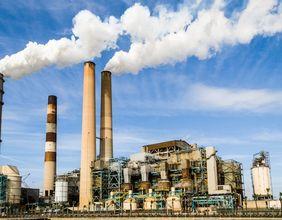Highlights
- Financial markets are an objective barometer of the health of an economy.
- Severe changes in climate might increase the frequency and severity of extreme weather events, which could impact economies, and in turn, financial markets.
- The risks posed by climate changes are a real threat to humanity as well as financial markets.
It may sound strange, but severe climate changes do affect financial markets across the world. Climate change is a change in the usual weather of a region. It is a variance in the degree of temperature or the duration of a climate change or any other deviation from the usual climate.

Image Source: © Meryll | Megapixl.com
Severe changes in climate might increase the frequency and severity of extreme weather events, which might further impact countries and different economies. It is a well-known fact that financial markets are an objective barometer of the health of an economy. The better an economy do, the healthier would be its financial market.
Watch: How blockchain technology can help fight climate change
At a broader level, there are two ways in financial markets are weighed by climate changes, namely –
- Financial loss
Financial loss is the most common risk perceived by businesses and their stakeholders. It is essentially the possibility of an economic loss due to increasingly severe climate change. The destruction of physical assets of a company could soar beyond provisions by the management.
For eg. A severe drought in a region might affect crop production. This physical risk to one of the main inputs (crop) for a chips manufacturer could dent its earnings capacity for the respective period, leading to a loss of investor’s confidence. Any apathy among investors would reflect in the company’s share price as well, leading to an obvious decline.
- Transition cost
As governments around the world are becoming more aware of harmful effects of a global phenomenon such as global warming, rising sea levels, acid rain, etc., they are ramping up their environmental regulations. The need to comply with newer norms is also forcing companies to deviate some of their profits towards fulfilling the norms.
For eg. to become a low-carbon economy, companies need to adopt newer technologies, which are eco-friendly, and are also known as “clean tech”. Any additional strain on the profitability of a business, more often than not, dents its share price as well.
Bottom Line
Risks posed by climate changes are a real threat to humanity as well as financial markets, and businesses across the world need to come together to fight climate change. However, there is a cost involved to protect against climate changes, which adds stress to the profitability of businesses. Also, if no cumulative measures are taken, then economic loss as a whole due to flash floods, hurricane, etc., could heavily weigh on financial markets.





